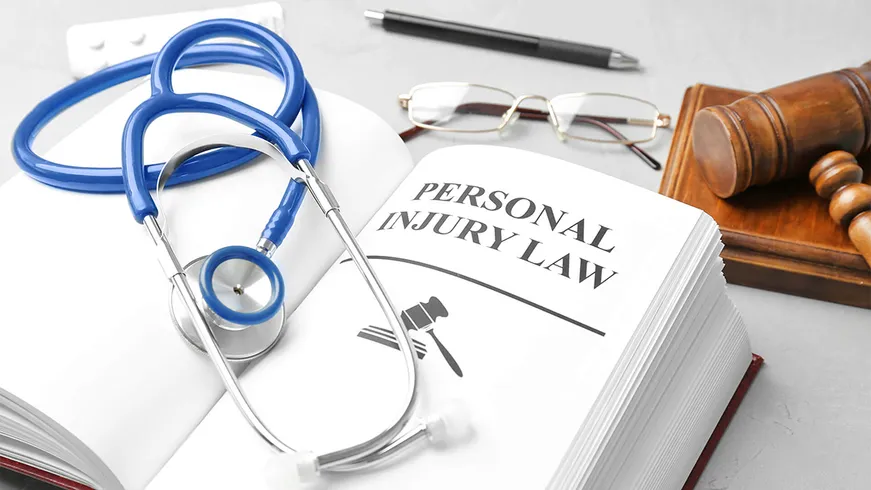Timing is important in workers’ compensation law. After you have been injured at work, report your injury to your employer as soon as possible. If you have been injured through repeated exposures to something, like loud noises or repetitive motion, report the injury to your employer as soon as you believe your work caused the problem.
Promptly reporting your injury can help prevent delays and other problems in getting the medical care and benefits you need. If you wait more than 30 days, you might even lose the right to file a claim. In California, Labor Code Section 5400 establishes a 30-day reporting deadline, although exceptions may apply in certain cases involving cumulative trauma or occupational diseases.
Reporting Your Workplace Injury
After you report your injury, fill out a workers’ compensation claim form (DWC-1 in California) and give it to your supervisor or human resources department. Your employer is required by law to provide you with this form almost immediately after learning of your injury. Submitting the form officially opens your case and begins the claims process.
Once submitted, your employer must notify the workers’ compensation insurance carrier, which has strict deadlines, usually 14 days, to accept, deny, or delay a claim. If the claim is delayed, the insurer must continue investigating and provide temporary benefits in the meantime. The California Division of Workers’ Compensation (DWC) oversees these obligations and enforces compliance. Employers are also legally prohibited from retaliating against you for filing a claim, and violations can result in penalties.
Types of Workers’ Compensation Benefits
Workers’ compensation insurance can pay several categories of benefits, including medical care, wage replacement, and retraining assistance. Understanding the details of each benefit helps you recognize what you may be entitled to:
- Medical care: All reasonable and necessary medical treatment should be covered, but in most cases, you must select a physician within your employer’s Medical Provider Network (MPN). Disputes about medical necessity are reviewed through a process called utilization review (UR), and if denied, you can request an Independent Medical Review (IMR).
- Temporary disability benefits: If you cannot work while recovering, you may qualify for Temporary Total Disability (TTD) or Temporary Partial Disability (TPD). These benefits typically pay two-thirds of your average weekly wage, subject to state maximum and minimum rates. Payments usually begin within 14 days of the employer receiving notice of your injury.
- Permanent disability benefits: If your injury results in lasting impairment, you may receive Permanent Partial Disability (PPD) or, in rare cases, Permanent Total Disability (PTD). The value is determined by medical evaluations, work restrictions, and your age and occupation at the time of injury.
- Supplemental job displacement benefits (SJDB): If you cannot return to your old job, you may be eligible for a voucher to retrain for a new career, covering tuition, fees, and certain expenses.
- Death benefits: If a worker dies due to a job-related injury or illness, their dependents may be entitled to receive weekly death benefits and assistance with funeral expenses.
Workers’ comp benefits are generally not taxable, which means you keep the full amount you receive.
Common Types of Work-Related Injuries
Workers’ compensation does not just cover sudden accidents. It also applies to a wide range of work-related injuries and illnesses:
- Traumatic injuries: fractures, burns, falls, or equipment accidents.
- Cumulative trauma injuries: repetitive stress conditions like carpal tunnel syndrome or tendonitis.
- Occupational illnesses include hearing loss, respiratory disease, and chemical exposure.
- Stress-related claims: certain psychological injuries arising from workplace conditions.
Each category of injury may involve different evidentiary requirements, deadlines, and claim challenges.
The Claims Process and Possible Outcomes
Once your claim is filed, it can result in several outcomes:
- Accepted claim: benefits begin as required by law.
- Denied claim: the insurer disputes the injury or its work-related cause, but you can appeal.
- Delayed claim: temporary payments are provided while the insurer investigates.
If your claim is disputed, you may need to attend a hearing before the Workers’ Compensation Appeals Board (WCAB). Cases can be resolved through different settlement structures:
- Stipulated Award: an agreement on permanent disability percentage, with ongoing medical care provided.
- Compromise & Release: a lump-sum settlement that closes the case completely, including future medical treatment.
Choosing between these options requires careful legal guidance because once you sign a settlement, your ability to reopen the case is extremely limited.
Why Legal Help Is Essential
It is also important to consult with a lawyer promptly after your workplace injury. Insurance companies that pay out workers’ compensation benefits don’t always act quickly, and they often try to settle for less than the worker deserves. Deadlines are strict, and missing one can severely damage your case.
A workers’ compensation attorney can help you:
- Navigate complex forms, appeals, and deadlines.
- Request second opinions or Qualified Medical Evaluator (QME) examinations if you disagree with the insurer’s doctor.
- Challenge denials and delays through the WCAB.
- Represent you in negotiations, mediations, or trials.
- Protect you against employer retaliation, which is illegal under California law.
Having legal representation levels the playing field and ensures you receive every benefit the law provides.
Common Pitfalls to Avoid
Delays and mistakes can result in the loss of your benefits. Workers frequently encounter problems such as:
- Waiting longer than 30 days to report an injury.
- Failing to seek immediate medical treatment, which allows insurers to argue the injury was not work-related.
- Submitting incomplete or inconsistent claim forms.
- Accepting early settlement offers that cut off future rights.
- Missing appeal deadlines when a claim is denied.
These pitfalls are preventable with timely action and informed legal support.
Frequently Asked Questions
What happens if I don’t report my work injury within 30 days?
You may lose your right to benefits under California law. However, in cases of cumulative trauma or occupational disease, courts sometimes allow claims if you reported promptly after discovering the condition was job-related.
Can I choose my own doctor?
Generally, you must treat within your employer’s MPN, but if you had predesignated your personal physician before the injury, you may be able to see that doctor. You can also change physicians after the first 30 days.
How much money will I receive from workers’ comp?
Temporary disability benefits are usually two-thirds of your average weekly wage, subject to maximum and minimum limits set by the state each year. Permanent disability payments vary based on medical evaluations and disability ratings.
What if my employer refuses to give me a claim form?
Employers must provide a DWC-1 form immediately. If they refuse, you can download it directly from the DWC website or seek help from an attorney.
Can I be fired for filing a workers’ comp claim?
No. Retaliation is illegal, and workers who are terminated for filing claims may have a right to reinstatement, penalties, or additional damages.
Can undocumented workers file for workers’ comp in California?
Yes. All employees, regardless of immigration status, are entitled to workers’ compensation benefits under California law.
Can I also file a lawsuit for my injury?
In most cases, workers’ comp is the exclusive remedy against an employer. However, suppose a third party (such as a negligent contractor or defective product manufacturer) caused your injury. In that case, you may pursue a personal injury lawsuit in addition to your workers’ comp claim.
Protect Your Rights With Hussain & Gutierrez
The workers’ compensation system is meant to protect you, but strict deadlines, complex forms, and insurance company tactics can stand in your way. At Hussain & Gutierrez, our experienced workers’ compensation attorneys help injured workers navigate the claims process, challenge denials, and secure the benefits they are entitled to.
We have guided countless injured employees through claims involving temporary disability, permanent disability, medical treatment disputes, and settlements. If you or a loved one has been hurt on the job, don’t risk losing your rights by waiting too long. Contact Hussain & Gutierrez today for a consultation and let us advocate for the medical care and compensation you deserve.



